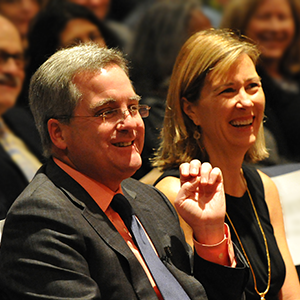City Attorney’s Office’s ‘national environmental leadership’ against global warming includes protecting Hetch Hetchy, supporting Obama EPA’s power plant regulations

SAN FRANCISCO (May 10, 2016)—City Attorney Dennis Herrera submitted his office’s Climate Action Report to the city’s Department of the Environment today, highlighting three litigation battles whose outcome could significantly affect regional and global environmental protection efforts. The report, which is mandated annually by San Francisco’s Environment Code, is required of each city department to detail its contributions toward meeting citywide targets to reduce greenhouse gas emissions, and to ameliorate the effects of global climate change. The Department of the Environment specifies the format for annual climate reports by ordinance, and this year sought summaries highlighting the office’s three most significant environmental contributions.
“Coastal cities like San Francisco face no greater long-term threat than global climate change, which endangers our infrastructure, our neighborhoods, and even our viability as a major metropolitan center into the next century,” said Herrera. “That’s why reducing greenhouse gas emissions has been a top priority of mine as City Attorney, and our work reflects significant, tangible steps to address climate change. This year’s Climate Action Report again reflects my office’s national leadership on these issues, and I’m very proud of the talented legal professionals whose efforts are making a difference. We are fighting to protect and expand our clean, renewable, publicly-owned energy sources; and we continue to push for more stringent federal regulation of polluting legacy power plants—like those my office successfully fought to shutter right here in San Francisco.”
Herrera’s Climate Action Report for 2016-17 highlights three cases:
San Francisco v. PG&E
- San Francisco’s high-stakes litigation against PG&E seeks to halt illegal anti-competitive tactics by the investor-owned utility, which aim to frustrate the city’s ability to continue serving its own local government services and tenants with clean, renewable power from publicly-owned sources. Renewable energy sources used by the city for its municipal purposes include up to 400 megawatts of electricity from its three city-owned hydropower plants, which generate clean power from gravity-driven water flow at Hetch Hetchy Reservoir. At issue in San Francisco’s case against PG&E is whether the private utility can use the stranglehold of its distribution system to force city taxpayers to invest as much as $600 million for new and duplicative facilities over the next decade—or begin scaling back its use of clean, renewable public power. The trial begins on May 18 before the Federal Energy Regulatory Commission, or FERC, in Washington, D.C. The case is: City and County of San Francisco v. Pacific Gas and Electric Company,S. Federal Energy Regulatory Commission, Docket No. EL15-3-000, filed Oct. 9, 2014.
‘Restore Hetch Hetchy’ v. San Francisco
- Another unrelated attack on San Francisco’s primary source of clean, renewable and publicly-owned power is a lawsuit that would drain Hetch Hetchy Reservoir, which also provides pristine drinking water for more than 2.6 million Bay Area residents. The Oakland, Calif.-based “Restore Hetch Hetchy” advocacy organization is pursuing a state constitutional challenge to the reservoir, which it hopes to repurpose into a park served by “shuttle buses or a tramway,” according to its website, for visitors. Drainage advocates insist that millions of Californians could replace their loss of clean hydropower and drinking water through a largely unexplained combination of other sources. Not so, Herrera argues: replacing Hetch Hetchy’s gravity-driven water and hydropower system would invariably require massive new power generation—well above current levels—both to pump and filter water from new sources, and also to make up lost generation currently used to run Muni and serve other public purposes. Herrera says that the ill-defined drainage scheme would likely create enormous new demands for greenhouse-gas-emitting energy, and eliminate essential water storage when climate change forecasts predict more rainfall and less snow in Sierra Nevada watersheds. A Tuolumne County Superior Court dismissed the lawsuit on April 28, 2016, but drainage proponents are pursuing an appeal. The case is: Restore Hetch Hetchy v. City and County of San Francisco et al., Tuolumne County Superior Court, Case No. CV 59426.
West Virginia v. U.S. EPA
- Herrera’s office helped to co-author an amicus brief along with dozens of local governments in support of President Obama’s Clean Power Plan, which is currently facing a federal legal challenge by Republican Attorneys General from more than 20 states. San Francisco joined the National League of Cities, the U.S. Conference of Mayors, and public law offices for cities and counties nationwide in the brief, which urges a federal appeals court to allow the U.S. Environmental Protection Agency to more stringently regulate greenhouse gases spewed by existing fossil-fueled power plants. Herrera played a lead role in legal efforts to close the two polluting power facilities in San Francisco, including a Mirant Potrero Plant whose closure the San Francisco Chronicle praised in 2009 as “nothing short of a miracle.” The amicus brief by local governments contends that cities are uniquely vulnerable to the catastrophic effects of global climate change, and are already paying for its effects. Oral arguments in the case are scheduled for June 2, 2016 before the U.S. Court of Appeals for the District of Columbia in Washington, D.C. The case is: State of West Virginia, et al. v. U.S. Environmental Protection Agency, et al., U.S. Court of Appeals, District of Columbia Circuit, Case No. 15-1363 (and consolidated cases).
# # #